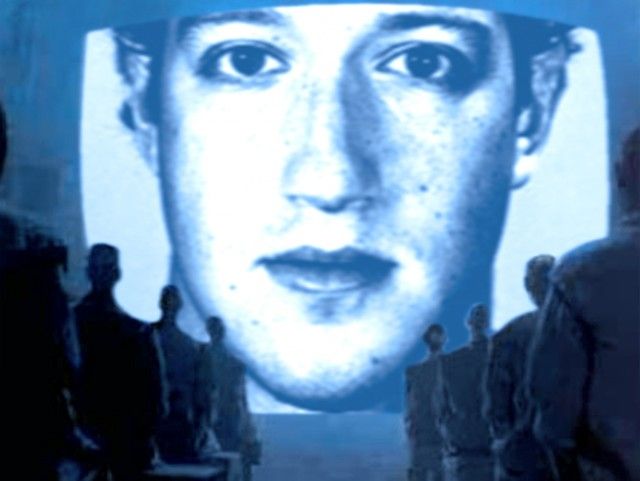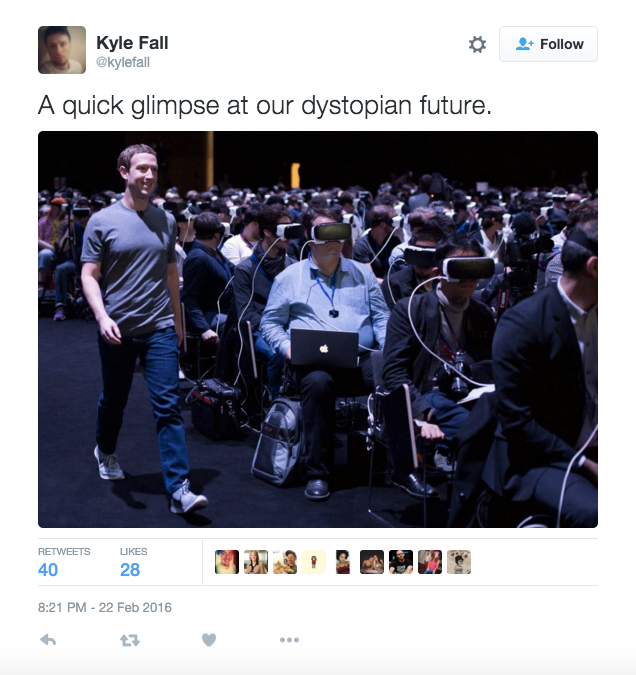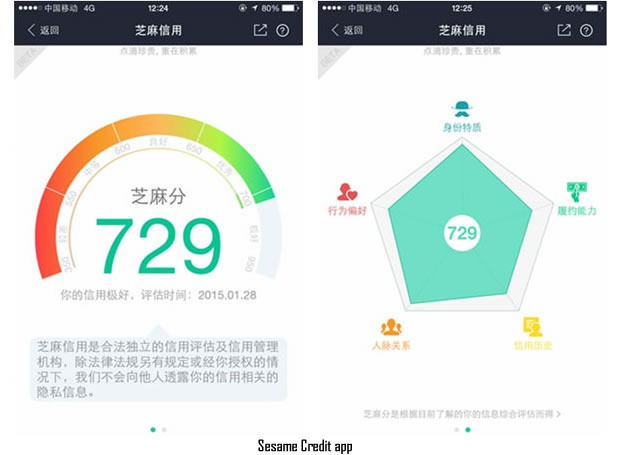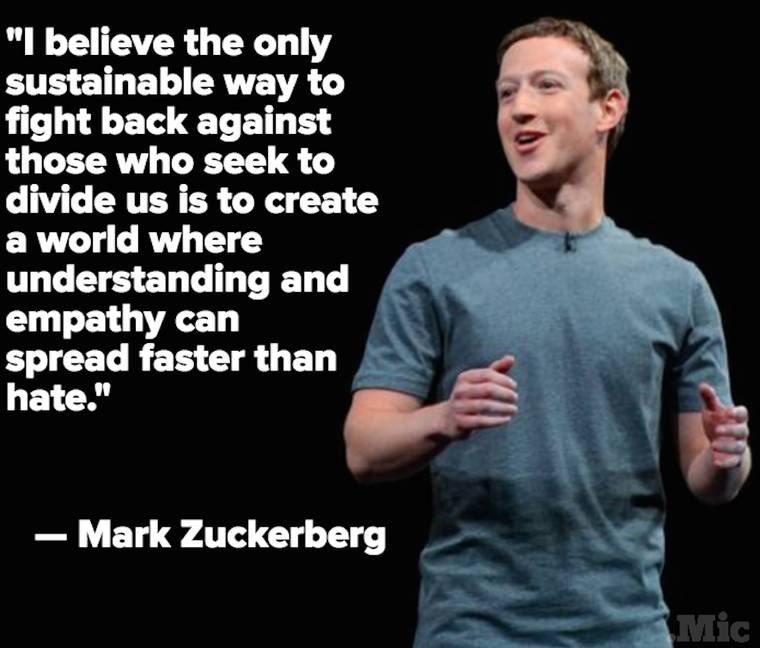
Corporate leaders, especially those considered thought leaders, have a firm right and assumed expectation to voice their opinion on public policy. As such, I've got no inherent issues with Facebook's founder and chief, Mark Zuckerberg, proclaiming his positions publicly -- even if I happen to blatantly disagree with them.
Mark and other leaders of their respective industries have something very intrinsically unique that most others do not. That comes in the form of the power of the pulpit. It places their opinion in a position which bring inherent weight and reach which many could only dream of. Yet, this advantage comes with a social responsibility so as to not abuse or otherwise misuse the privilege.
There are two subtle, yet very troubling, problems which stem from Zuckerberg's outright (now quite public) shaming of coworkers who disagree with his political viewpoint on Black Lives Matter. And thanks to Gizmodo, where news of this story first broke, the tainted prism with which Zuckerberg's position is being framed says it all:
Mark Zuckerberg Asks Racist Facebook Employees to Stop Crossing Out Black Lives Matter Slogans
The first area of contention I have, which most of the media has either avoided or forgotten to address, is the notion that Zuckerberg's coworkers who don't see eye to eye with him on Black Lives Matter are, as Gizmodo insinuated, racists.
Not only is this characterization blatantly false and self-serving, but it's also an assertion which a majority of America doesn't agree with Zuckerberg on. As public polling data (referenced below) proves, Zuckerberg's narrow views on BLM are in the minority, with most Americans -- and most importantly, even African Americans -- not having a favorable view of the #BLM cause and preferring the All Lives Matter tagline instead.
The bigger issue at play is perhaps how this may be one of the more important recent examples of corporate figures crossing the line from acceptable political advocacy to outright unwanted thought policing of their staff.
As the face of the largest social network in history, Zuckerberg risks taking his personal beliefs beyond corporate policy positions and instilling a culture of zero dissention among the ranks of his workforce. This blurring of the lines between protected free speech and a future potential of say, a Facebook Charter of Acceptable Free Speech, could spell trouble for not only Facebook employees, but set a terrible precedent for workers in other non-IT industries.
It sounds crazy, Orwellian, and perhaps far fetched, but do realize that this barrier is about to be crossed by one of the largest countries in the world: China. It comes in the form of a little-covered initiative, known as the Social Credit System (SCS), that will become mandatory by 2020 for all citizens of the state.

Some parts of the internet took aim at a chilling photo Mark released from his appearance at Mobile World Congress, surprising hundreds of guests while they were entrenched in Gear VR headsets. Possible allusion to a modern, Orwellian future dictated by the whims of our IT industry leaders? That's up for interpretation, but a reality some say may not be far fetched.
Taking its cues from the American credit ratings system, this far-reaching program will not only take into account financial standing, loan history, purchasing history, and related aspects of personal life, but it goes one scary step further.
Relationships, gossip, social media presence, and political dissent will factor into this "rating" that each person gets. Just as the American credit rating system allows for the indirect control of unwanted behavior in financial decisions, China is hoping to keep its citizens' political thoughts and government opinions in check to a T. Yes, thought policing in its most acute and tyrannical form.
This is also the same country which still actively blocks Facebook access to nearly all citizens within its borders. It's not hard to believe that Mark Zuckerberg would love to expand his social empire into this untapped market.
And if that potentially means playing by China's rules, would he oblige? Would the SCS get unfettered Big Data taps into Facebook's never-ending hooks it enjoys in its users' lives?
That's a great question, which makes you wonder. Given Mark's recent propensity towards directing intra-company censure on political issues he deems unworthy, where would the Facebook founder put his foot down?
Data Suggests Zuckerberg's #BLM Stance Doesn't Match America's
That Facebook is made up of employees which, just like the rest of society, represent America at large is something which can't be denied. To me, per media coverage afforded Zuckerberg in blanketing those who disagree with the tagline Black Lives Matter, the assumption is being made that Mark is either in the majority viewpoint or that Facebook's staff exists in a vacuum. Both assertions couldn't be further from the truth.
Hence why publicly available data, which has been widely distributed online, is critical in establishing the argument that these workers weren't "fringe" activists in any way. Judging by polling data released, a wide majority of Americans don't see eye to eye with the name or the motives of Black Lives Matter.
Numbers released by Rasmussen last August stated the mood of America at large when it comes to #BLM. An overwhelming 64 percent of interviewed blacks claimed that, contrary to Zuckerberg's beliefs, All Lives Matter, not Black Lives Matter, was the phrase which more closely associated with their views. This sentiment held true with 76 percent of other non-black minority voters, as well as 81 percent of whites.
Even further, a majority, or 45 percent of all those interviewed, believe that the justice system is fair and equal to black and Hispanic Americans. And perhaps most shocking, a resounding 70 percent of voters believe that crime levels in low income, inner city communities is a far bigger issue than police discrimination of minorities.
It's not surprising that inner city crime is so high on the list of concern for average Americans. These death tolls in the inner cities are shoveled on local news segments daily with such frequency that most people are numb to their dire meaning. And most acutely, much of this crime epidemic comes in the form of "Black on Black" crime, as penned by DeWayne Wickham of USA Today.
Wickham says:
While blacks are just 12.6 percent of the nation's population, they're roughly half of people murdered in this country each year. The vast majority of these killings are at the hands of other blacks.
And DeWayne's questioning of the response at large by the #BLM movement continues, addressing their refusal to discuss black on black crime:
Why such a parsing of contempt? Maybe the people who've taken to the streets to protest [Trayvon] Martin's killing don't care as much about the loss of other black lives because those killings don't register on the racial conflict meter. Or maybe they've been numbed by the persistence of black-on-black carnage.
As such, the credibility of the #BLM movement at large continues to dissipate in the eyes of Americans. A follow-up Rasmussen study of 1000 likely voters, done mid-November 2015, follows the public's dismay with the group's approaches and message.
According to the numbers published, by a 2-to-1 margin, voters don't think #BLM supports reforms to ensure all Americans are treated fairly by law enforcement. A further 22 percent of those surveyed just "aren't sure" whether the group truly supports its stated goals.
And on the question of whether blacks and other minorities receive equal treatment by authorities, this number only went down one percentage point from the August 2015 study, to 44 percent, of those who believe this is a true statement.
A full 30 percent of African American voters said that #BLM doesn't support reforms, with another 19 percent not being sure. A sizable 55 percent of whites said the same about #BLM.
While the racial makeup of Facebook's employee base has been mentioned numerous times in media recently, this has little bearing on the nature of whether there was just cause for Zuckerberg to so publicly throw his staffers' political viewpoints into the spotlight and frame them as malicious or metaphorically, racist.
As the numbers above prove, the overwhelming majority of the American public which includes black Americans, consider themselves better represented by All Lives Matter. Why is Zuckerberg's personal will and viewpoint more important than that of not only his coworkers, but more importantly, that of America's? It's a question I just can't find a reasonable answer for.
Let's make this very clear up front: while Zuckerberg framed his wrath in the prism that coworkers were espousing racist feelings by replacing #BLM markings with the more inclusive #ALM alternative, this mischaracterization of the larger issue shouldn't be mistaken. Mark has a personal, vested interest in pushing his own beliefs on that of Facebook workers. This would have never been such a story if he allowed public discourse to occur on its own, just as it does outside the protected walls of Facebook offices.
While scouring the web to try and make sense of how Zuckerberg's interpretation that Black Lives Matter inherently, actually, really means All Lives Matter, I found numerous discussions online trying to pin justifications for how BLM places an inherent importance on raising black deaths on a pedestal -- while being supposedly careful to stay inclusive, as its supporters duplicitously claim.
This roundabout, purposefully misguided framing of what most of America finds to be a divisive name is what naturally gives rational thinkers like myself cause for alarm. Why would these people, including Zuckerberg based on his wild publicized reaction, not prefer the term which Americans' at large say represents them best -- in All Lives Matter?
Some say actions speak louder than words, and BLM has been doubly guilty of doing many deeds which go counter to their stated goals of equality. Take for example the Nashville chapter of BLM's attempt to take a page out of the segregation era, and try to host a color-only meeting of their members at the Nashville Public Library. Mind you, this happens to be a place that is taxpayer supported and as such, open to the entire public, regardless of color.
The Nashville BLM chapter leader, Josh Crutchfield, didn't deny that their branch has this rule. "Only black people as well as non-black people of color are allowed to attend the gatherings. That means white people are excluded from attending".
The chapter, naturally, claimed that the Library's decision came down to white supremacy in the local government. If that reasoning makes any sense to the average person who may support BLM's objectives, I'd love to hear in what manner. That a taxpayer funded establishment couldn't discriminate entrance based on color in the year 2016 is quite a disappointment for Nashville BLM. I'm perhaps more surprised that the media hasn't picked up on this story to a greater degree.
In a similar display of rash white shaming and public berating of innocents bystanders, BLM protestors decided to hold an impromptu rally inside the Dartmouth College library -- with hooting and chanting in tow.
Protesters were reportedly shouting “F– you, you filthy white f–-” “f– you and your comfort” and “f– you, you racist s–". The college newspaper went into detail about the incident and the kinds of abuse that innocent students who had nothing to do with taking an opposition view had to endure.
Is this the movement and approach that Zuckerberg so proudly decided to stand behind from his pulpit? While the rest of America is judging BLM in a lens of totality that takes into account its actions, Mark is seemingly blinded by the idealism he perhaps wishes to establish as Facebook's public policy stance.
To put a crescendo on the discussion about BLM's shortcomings, I found the words of 1960's civil rights activist Barbara Reynolds to provide quite the clarity on the issues at play. She wrote a lengthy op/ed on how BLM has the right cause but absolutely the wrong approach:
At protests today, it is difficult to distinguish legitimate activists from the mob actors who burn and loot. The demonstrations are peppered with hate speech, profanity, and guys with sagging pants that show their underwear. Even if the BLM activists aren’t the ones participating in the boorish language and dress, neither are they condemning it.
If BLM wants to become a serious patron of bearing the message it is trying to convey, it needs to ditch the white shaming, hate rhetoric, and brazen acts of violence. And most importantly, it needs to distance itself from the distasteful actions taken by decent portions of its base. Sitting by idly without denouncing bad behavior being committed in the name of a movement paints the movement at large. Perhaps, only then, would Zuckerberg have a leg to stand on when it comes to upholding the right and just side of history.
BLM, to its likely dismay, also doesn't care that the only African American formerly in this year's presidential race, Ben Carson, happens to agree that All Lives Matter more accurately reflects the sentiment he holds. "Of course all lives matter -- and all lives includes black lives," Mr. Carson said. "And we have to stop submitting to those who want to divide us into all these special interest groups and start thinking about what works for everybody".
Thought Policing Goes Digital in China: A Model for Zuckerberg?
If you're interested in getting a feel for the direction of an organization, or a country for that matter, just look at the stated motives of those in charge. And in this prism, China's goals for the Social Credit System have some overt overlapping with Facebook's own mission statement.
Per the Facebook Investor Relations website, Zuckerberg's corporate intentions for the company are quite simple:
Founded in 2004, Facebook’s mission is to give people the power to share and make the world more open and connected. People use Facebook to stay connected with friends and family, to discover what’s going on in the world, and to share and express what matters to them.
It's interesting, then, to read the stated intentions behind China's proposed SCS, as put forth by the State Council (per New Yorker):
Its intended goals are "establishing the idea of a sincerity culture, and carrying forward sincerity and traditional virtues," and its primary objectives are to raise "the honest mentality and credit levels of the entire society" as well as "the over-all competitiveness of the country," and "stimulating the development of society and the progress of civilization".
The words chosen for each directive's goals are markedly different, but the intersecting junction of their larger motives are quite the same: making the world more connected and better as a whole.
Yet for the cautious outsider, it's not difficult to see why you may connect some logical future dots between Facebook and a state-imposed SCS like China is rolling out in 2020. Per the New Yorker piece on how one Chinese company is molding its variant of a SCS, "Tencent’s credit system goes further, tapping into users’ social networks and mining data about their contacts, for example, in order to determine their social-credit score".
It's no secret that China employs one of the grandest firewalls in the world, blocking its millions of users from "sensitive" topics deemed unhealthy and politically off-limits by the State. Facebook's website sits on this massive blacklist... so far. A little negotiating between Mark and the Chinese authorities may change matters quickly.

The SCS trials are already live in China, with users having access to mobile apps (one shown above) which gamify the rating process. The various tenets of what makes up one's score -- financial dealings, judicial rulings, mutual contacts, political dissent, and more -- are all built into the algorithms being used. There's no secret in the fact that Facebook APIs feeding this data mining machine would be digital gold to the ruling Communist party in suppressing freedom of thought. (Image Source: ComputerWorld)
Is it far fetched to believe China wouldn't give Zuckerberg passage onto the whitelist if they only agreed to allow the eventual SCS to tap into any data point Mark's datacenters can store and organize?
Let's not forget the lengths to which Mark will go in order to disguise goodwill just to gain a few Facebook users. His company was most recently embarrassed when the Internet Free Basics phone service was barred from India and Egypt because of its hypocritical stance on net neutrality. Zuckerberg's vision of connectivity is firmly seated in an experience that puts Facebook front and center, which Internet Free Basics made no effort to hide.
Mark's critics on Internet Free Basics were so fueled up that they penned enough signatures to send an open letter to Zuckerberg -- spanning support from 65 organizations across 35 countries. The crux of the debate which connects the SCS situation to this latest corporate blunder shines a light on one very critical aspect here: that Mark's company will go to great lengths in order to ensure global penetration.
And having Facebook blocked in China is likely a very troubling, omnipresent problem for the company. Any kind of legalized access for Facebook in the mainland would in some way have to allow for their willingness to oblige in the SCS. It simply defies logic to see this reality end up in any other outcome if the two are to become eventual bedfellows.
The more important moral question here is whether Zuckerberg would have any moral dedication to withholding Facebook from China if SCS penetration is demanded in exchange. It's no secret that Mark's obligation to enhance Facebook's bottom line trumps much of his policy direction.
His company is on the forefront of the H-1B visa debate, arguing that more skilled foreign labor is needed to fill talent shortages here in America -- something, as someone myself who employs those in the IT industry, believes is a big fat falsehood. As others have pointed out, the numbers behind the argument don't add up, and Facebook is just disguising a desire for cheap foreign labor in this newly created false argument.
How dangerous could Facebook's cooperation with the SCS in China be? For average Americans, at least on the short term, quite disinteresting honestly. The dictatorship in China will tweak and hone the SCS, sucking Big Data out of the likes of Facebook for years to further repress its own people who choose to express a free political will. That's always been the big untold agreement in Chinese society; you can have a grand Western-style capitalist economy, but don't dare to import any of those democratic free speech principles.
But the larger moral dilemma at hand is how Zuckerberg would use the experiment in China to encroach on Facebook users, or staff, closer to home. The title of this article alludes to the potential rise of corporate Thought Police. Such a reality doesn't seem as far fetched when the technology is almost there to enable it, and bigwigs like Zuckerberg are showing more willingness to push top-down political agendas.

Zuckerberg isn't shy about the kind of society he wants to foster. Giving us Facebook was the beginning, but what does the next step look like? I believe controlling and censoring the medium may be a logical next step. (Image Source: Yahoo News)
And by all means, I'm not the only one pushing alarm to this possible reality. In the wake of Mark's BLM outburst, piece after piece after scathing piece came out against the notion of a Thought Police encroachment by Mark or other social media behemoths.
Such a reality would likely begin with unpublicized cooperation with the state of China in implementing API hooks between Facebook and their SCS. Naturally, Facebook would then have the technical insight into how China culls and acts on the data gathered, but more importantly, a public precedent for such a civil liberty dystopia.
While there is no automated approach to cleansing Facebook's corporate office whiteboards, lessons learned from a potential SCS implementation with China could very well help enact such technology against its own staff Facebook accounts. Eradicating staff discourse which goes against Mark's agreed upon thought positions would allow for testing broader US-based social media censure, and it could be twisted in such a way to promote adherence to Facebook's corporate mission statement.
If trials went well, could we expect a rollout to all Facebook users? Again, if the dots on the above established logic can be considered viable, this wouldn't be far behind.
It's a dangerous dance to imagine; an ironic reality where the supposed leading platform in internet free speech would become the forefront bastion of political censorship and cleansed open discussion.
Here's hoping such a reality never comes to fruition. But if Mark's now public BLM outburst and subsequent staff shaming is any indication, beware a frightening future of social media that becomes curated by topical whitelists dictated by corporate Thought Police.
Dissenting opinion certainly will need not apply.
Headline Image Source: Cult of Mac

Continue reading...
